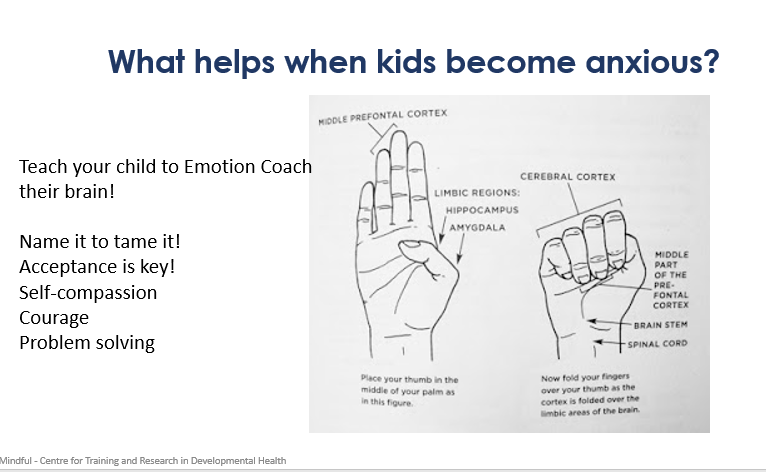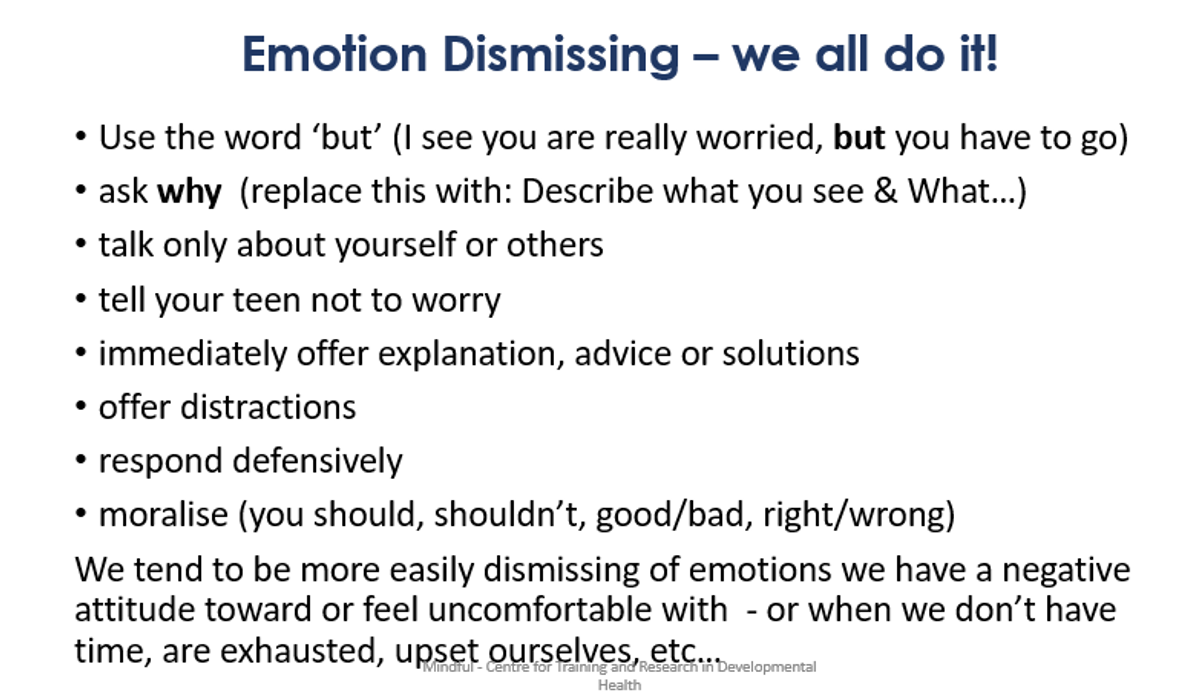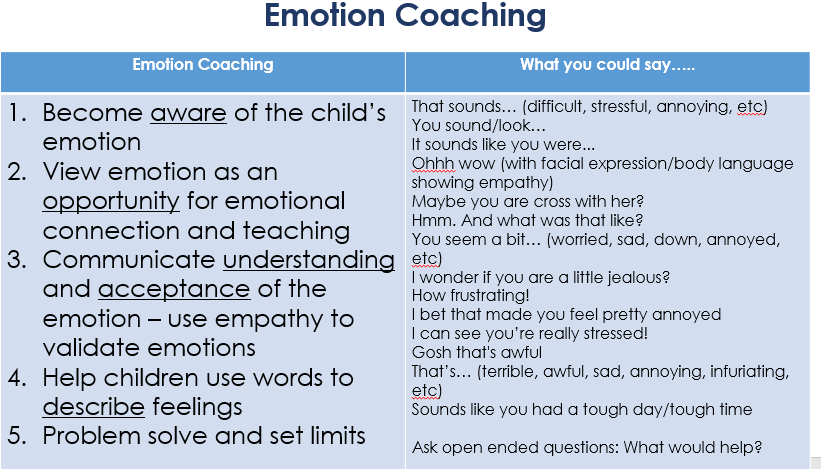assistant principal's message

dear families
Wow! I heard it was good, it was better than good, it was brilliant!!! The Tuning into Teens session that I attended last Tuesday night, provided some practical and very supportive insights into adolescence and how best to parent them.
That’s no small feat! As a parent now of young adults, I certainly remember my trepidation while watching them during primary school, being fearful that we’d lose our loving and adoring little beings. My husband, Michael and I, always joked that we’d move out during the teenage years, but would weekly post food vouchers under the front door. Such was the worry of what tests our children would present.
Happily, I ended up mostly enjoying these years, I simply loved watching them grow into the people they now are! Much to my surprise, I began being an advocate for teenagers, especially teenage boys, as I grew concerned about all the negative media about them.
As Dr Christiane Kehoe, the presenter and co-author of Tuning Into Teens, so succinctly said on Tuesday night, we were ‘fired as managers’, and humbly accepted being rehired as consultants! I’m sure that many of you now are trying on your new consultants clothes!
During the evening Christiane provided some succinct information about Anxiety and Anxiety Disorder. She introduced us to current anxiety theories, linking these to how emotion coaching helps.
The importance of naming the emotion and sitting with it with your child was clear. At school, the learning pit, is an opportunty for children to explore feelings of potentially being overwhelmed, while working out ways of solving achieving their goal. Restorative justice conversations, in which children acknowledge their part of a problem, working towards restoring the relationships, also helps them build life-long interpersonal skills.
The part of the evening where we all squirmed a bit was when Christiane introduced Emotion Dismissing. I challenge you all to read the slide and think of a time when you’ve done this! If you are like me, it won’t be difficult at all.
I though Christiane’s advice to flip the but was great, e.g. I have to… but then I can…
So our challenge is rather than be emotionally dismissive, is to be an Emotion Coach.
A simple, and in no way perfect example of Emotion Coaching was today, when I was with a very upset student.
As often happens, I was busy at the time, and it was nearly the end of the school day, so time was limited. Hearing this child’s distress it was clear that I needed to reprioritise my time and support her. Calmly I sat on the floor near her, simply listening, after a little while, I
The importance of naming the emotion and sitting with it with your child was clear. At school, the learning pit, is an opportunity for children to explore feelings of potentially being overwhelmed, while working out ways of solving achieving their goal. Restorative justice conversations, in which children acknowledge their part of a problem, working towards restoring the relationships, also helps them build life-long interpersonal skills.
The part of the evening where we all squirmed a bit was when Christiane introduced Emotion Dismissing. I challenge you all to read the slide and think of a time when you’ve done this! If you are like me, it won’t be difficult at all.
I though Christiane’s advice to flip the but was great, e.g. I have to… but then I can…
So our challenge is rather than be emotionally dismissive, is to be an Emotion Coach.
A simple, and in no way perfect example of Emotion Coaching was today, when I was with a very upset student.
As often happens, I was busy at the time, and it was nearly the end of the school day, so time was limited. Hearing this child’s distress it was clear that I needed to reprioritise my time and support her. Calmly I sat on the floor near her, simply listening, after a little while, I
asked her to sit next to me. Through showing empathy towards her strength of emotions, and asking open-ended questions, she was able to tell me how scared and angry she was. She helped me understand her situation more and through saying things such as “I can see you’re really sad.” I was able to validate her emotions. Ultimately, through empathising and questioning (emotion coaching and restorative justice techniques) together we were able to begin solving her problem.
I’m looking forward to next Tuesday night where we’ll further explore emotion coaching and anger. Please register if you are interested in attending, even if you’ve not been able to come previously!



